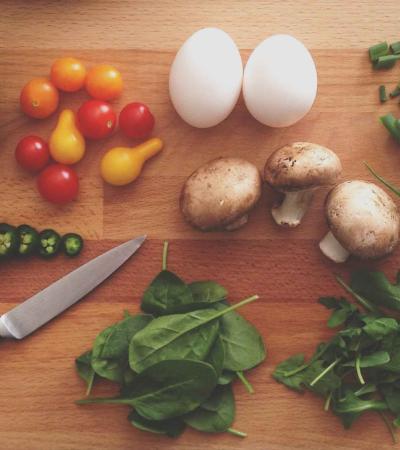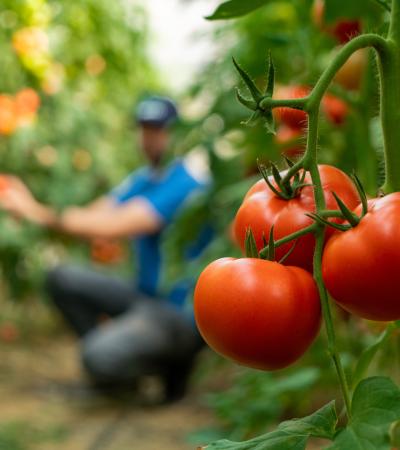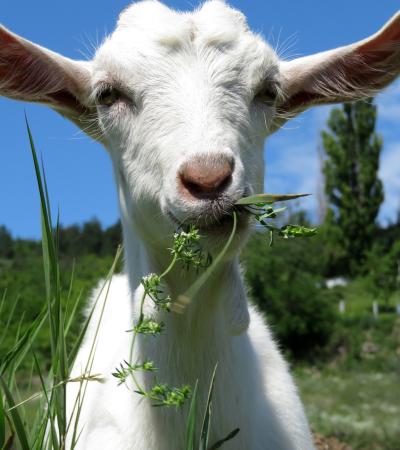For public libraries and community partners across North America, February is prime time for gardening programs. There are many types of gardening programs you can offer, and many partners you can work with to develop them.
A quick survey of the gardening programs being offering this February and March in North America reveals that libraries are offering:
- Informal lifelong learning programs that appeal to both experienced and new gardeners
- Structured how-to-garden classes for newbies
- Gardening expos
- Programs on starting and sustaining community gardens
Let's explore a few of these formats and the partnerships that support them.
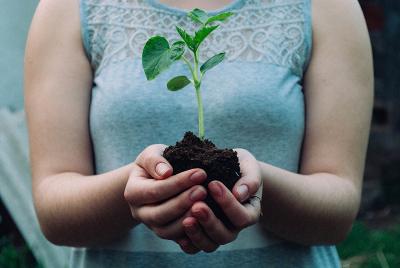
Gardening in libraries
In Vienna, W.Va., the library offered its fifth year of gardening programming with a program series held every Friday in February. The idea behind the program is to get people ready to garden when the time is right to do so. The workshops are jointly sponsored by the Vienna Library, Wood County Master Gardeners and the West Virginia University (WVU) Extension Service.
“Beyond the educational value, it’s always fun to meet and interact with people of similar interests,” says J.J. Barrett, agriculture agent at the WVU Extension Service. “Research has proven the benefits of gardening including developing healthy eating habits, relieving stress, increasing physical activity and having a more positive outlook on life. Whether you are a seasoned gardener or a beginner, there is always so much to learn.” The library is the perfect place to do so.
Further north, in St. Thomas, Ontario, the public library held its third annual Seedy Saturday program on Feb 16. The event, co-sponsored with master gardeners and over 20 vendors, gets everyone in the mood for gardening season, says library assistant Jonathan Mitchell. The event typically attracts over 200 people, both beginning and experienced gardeners.
In Geneva, N.Y., the public library offers a beginning gardening course that teaches patrons to grow food on a limited budget. This is a collaborative program involving Growing Geneva Together, Community Garden Coalition; Hobart and William Smith Colleges, Finger Lakes Institute; and Cornell Cooperative Extension Ontario County. The first session takes place Feb. 28.
A similar program takes place this February in Hays, Kan., where from Feb. 2 to March 7, you can participate in a structured series of classes on how to garden, beginning with Prepare for Your Spring Garden, and continuing with Starting Seeds Indoors, Build Soil and Make Compost 101, and ending with Bring Your Garden into Being. The programs are led by local gardeners.
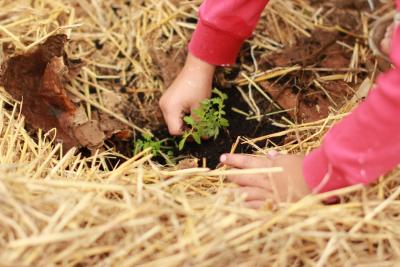
Nearby, in Omaha, Neb., the Omaha Public Library will hold a program on Starting Seeds Indoors on March 16, part of its Common Soil Seed Library series. Omaha, like hundreds of public libraries, now have seed libraries. But those seeds aren’t useful if you don’t know what to do with them. Hence the programming series, which also includes sessions on Composting 101, Vegetable Gardening and Spice Up Your Garden with Herbs, all led by Douglas County Master Gardeners.
Similarly, in Tennessee, the Williamson County Public Library Garden Talk Series began Feb. 11, with a program in which master gardeners share how to "get a jump on spring planting by starting seeds now.” Like Omaha, the Williamson County Public Library has a seed library.
Finally, some libraries are helping their communities take gardening to the next level by starting and sustaining community gardens. That is what is happening at the High Point Public Library here in North Carolina. During February, the library offered a program on How to Start a Community Garden with the North Carolina Cooperative Extension.
If you’ve been paying attention, you’ve probably noticed that a term that came up a lot in this article is “master gardener.” Master gardeners are volunteers trained by the USDA’s Cooperative Extension Agents in small-scale food production, horticulture and gardening. Want to become a master gardener? Well, libraries help out with that as well. Back in West Virginia, the Main Branch of the Parkersburg and Wood County Public Library hosts a Master Gardener Training Course starting March 18, led by the West Virginia University Extension Service.
Partnerships: Advice from program planners
How can you prepare your communities to exercise their green thumbs? I posed this question to library workers in ALA's Programming Librarian Interest Group on Facebook. Some responses included:
- “Partner with the food bank or similar institution and have plants and such for people to take with them and plant. Many people who are food insecure grow some vegetables. In many states food stamps can be used to buy fruit and vegetable producing plants and trees.”
- “Our system this past summer joined up with one of the university's agricultural departments and created a whole series of events that occured at multiple branches. Most of the six-part series was for kids.”
- “Partner with the local 4H/Cooperative Extension. They can (frequently) give you things like seeds and soil and what services they offer, like the master gardener program.”
- “We've partnered with our local master gardeners to offer a make-and-take program on succulents. This has gotten an overwhelming response. They covered having the supplies and succulent plugs and pots. We have helped pay for some of the class. It is really popular with patrons.”
- “We have a seed library (and) our monthly events are known as the Sowing Circle. We are partnered with our County Extension Master Gardeners. The season opened Saturday, Feb. 2, and we had 40 people at the opening.”
Librarians also discussed the importance of actively working with partners to ensure programs that they offer actually meet community needs. One librarian wrote, “My library partners with our county's master gardeners on a gardening series every year.” During the first year, the master gardeners developed the entire program by themselves, and it did not work well: “Those were mostly attended by master gardener interns/volunteers to fulfill their classroom hours.”
Based on what happened the first year, the librarian took a more proactive role in shaping the program in subsequent years. “Since I've been working on it, the master gardeners ask me about topics that I hear people asking about, and we work together to develop a series of programs that meets that need. We also added a teaching garden last year, and I ran a cooking series with items from the garden. I was amazed at how popular that was.”
This is what we want: True partnership. The master gardeners and extension agents may have expertise on gardening, but you as the librarian have the expertise on your community’s lifelong learning needs. Work together with your partners to develop gardening programs that will resonate with your community and increase access to this healthy living activity.

